
Why Did I Want to Read Moonlighting: An Oral History?
Over on Twitter last month, Grab This Book said something about requesting a book about Moonlighting on NetGalley, and the next thing I knew, I was on the site doing the same thing. It was a reflex, since I was twelve I wanted to know everything I could about David Addison, Agnes DiPesto, Maddie Hayes, Herbert Viola—everyone at the Blue Moon Detective Agency, their clients and adversaries. I watched first-run episodes, reruns, syndicated episodes (when it was possible to find them)—the only reason that I haven’t watched the whole series on DVD multiple times is that they’re hard to find—and prohibitively expensive when you do*. In short, I was a huge fan of the series, and the idea of a book devoted to it was something I had to get my hands on.
* But after I get this posted, I’m going to re-watch the first 3 seasons, I assure you.
Who is the Target Audience for Moonlighting: An Oral History?
People who have watched some/all of the ABC series that aired from 1985 to 1989. Well, not just watched but enjoyed the show. This isn’t going to work for you unless you have at least some familiarity with the show.
And the number of people familiar with the show isn’t that large and isn’t growing. Unlike so many things from that era, you can’t watch it on syndicated re-runs or a streaming service—and then there are the aforementioned issues with the DVDs.
But if you’re part of that group? This book is definitely for you.
What does the Oral History Cover?
There are discussions of each season, with chapters that focus on particular episodes as well—big ones, like the pilot, the black and white episode*, the Shakespeare episode**, the Christmas episode***, and so on****. There are discussions about some of the guest stars and specific behind-the-scenes personnel.
* “The Dream Sequence Always Rings Twice”
** “Atomic Shakespeare”
* “Twas the Episode Before Christmas”
* like “The Son Also Rises”, “Big Man on Mulberry Street”, “I Am Curious… Maddie”
Aside from episodes/seasons, the focus is on the writers, creator, and primary stars—Cybil Shepherd, Allyce Beasley, Curtis Armstrong, and Bruce Willis. The first three appear in the book, but despite trying, Willis and the author couldn’t work out the timing.
It’s not all glowing and positive, there are real criticisms of the writing, plots, and characterizations—as well as how some scenes came out in the end. Some of the criticism is due to this being a show that’s very much a product of its time, doing things that wouldn’t make it to air today. There are frank and honest discussions about the behind-the-scenes drama and conflicts. But it’s all given from a place of love/admiration for the show, there are no cheap shots in these pages.
That said, on the whole, this is a very positive book—it’s written by a long-time fan (which is obvious), with interviews from the people most involved in the show’s production, most of whom have very positive memories and associations with the show. These people poured proverbial blood, sweat, and tears into Moonlighting and it shows in the way they talk about it.
So, what did I think about Moonlighting: An Oral History?
This post was difficult to write, as you can see from that first paragraph, I can fanboy over this series with little provocation. I have 9 pages of single-spaced notes from this book. And restraining myself from using every note in this post was difficult. If I was reading this post-publication and could quote from it? I’d probably be unable to finish this post for a month because I’d be struggling to find the best 3-4 parts to quote.
When I read a book about a television show, I want a few things—I want something to
-
- make me want to rewatch the show
- make me not really need to, because the book has helped me remember it in such a way that it’s not that necessary
- give me a lot of behind-the-scenes information about the show
- help me understand it better (not just information, but reflections on it—its legacy, cultural context, impact on television, et.)
- Ideally, teach me something about the art and/or business of television (preferably both)
- and if it can be fun (TV should be entertaining), that’s all the better.
Yeah, that seems like a lot to ask for from a book, but if I’m going to take the time to read a book instead of watching a behind-the-scenes show or listening to a panel discussion, I want bang for my buck—I don’t always get it (and know that going in), but I want it. Moonlighting: An Oral History delivered on all of these fronts. In spades.
Also, I find that a lot of oral histories run out of steam after a while—to get one to stay interesting for almost 300 pages is a feat—and it takes a combination of great interview-ees and skill from the author in asking the right questions and then assembling the pieces used in the final product.
Could this have been improved if Ryan had been able to work out the scheduling to get Willis involved? Yes. Almost definitely—although, I think he maybe ended up coming off better this way. There’s no defensiveness on his part or protecting his name or anything like that (not that he necessarily would be that way, I don’t know)—it’s the cast, crew, and Ryan that get to sing his praises.
How much did I enjoy this book? I even liked the “Special Thanks” chapter—which is far more involved than your typical Acknowledgements section. Ryan talks about how the book came to be, how he interacted with some of the interview-ees, and so on. When even the Acknowledgements part of a book is worth commenting on/taking note of, you know you’ve got a winner of a read.
I had a blast reading this—I can’t imagine any half-hearted fan of the show not enjoying themselves. The only thing better might be sitting down to talk to Ryan about the show and what he learned from interviews (but that would be hard to refer back to, so maybe that wouldn’t be better).

P. S.
If anyone out there has a copy of seasons 4 and/or 5 on DVD that they’d like to donate/sell for less than market price, please get in touch with me. Please.
Disclaimer: I received this eARC from Black Château via NetGalley in exchange for this post—thanks to both for this.
This post contains an affiliate link. If you purchase from it, I will get a small commission at no additional cost to you. As always, opinions are my own.

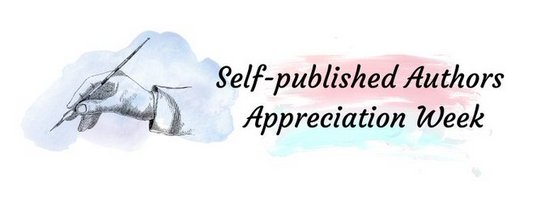
 Life and Death Behind the Brick and Razor: Code Red Diamond by Isaac Alexis, MD—A prison doctor uses his experiences to give suggestions for a healthy/healthier life. (my post about it)
Life and Death Behind the Brick and Razor: Code Red Diamond by Isaac Alexis, MD—A prison doctor uses his experiences to give suggestions for a healthy/healthier life. (my post about it) No Problem, Mr. Walt: Building a Boat, Rebuilding a Life, & Discovering China by Walt Hackman—Hackman was one of the first self-published authors to reach out to me, and I’m so glad he did. A fascinating read about a man deciding to have an authentic Chinese junk built for him to use as a houseboat in California. (my post about it)
No Problem, Mr. Walt: Building a Boat, Rebuilding a Life, & Discovering China by Walt Hackman—Hackman was one of the first self-published authors to reach out to me, and I’m so glad he did. A fascinating read about a man deciding to have an authentic Chinese junk built for him to use as a houseboat in California. (my post about it) Struck Down but Not Destroyed: Living Faithfully with Anxiety by Pierce Taylor Hibb—Drawing on what he’s learned from over 12 years of an anxiety Hibbs talks about learning to see what God’s purpose in the suffering is (anxiety disorders specifically, but easily transferable to other types), understanding that His hand is guiding all things—including our problems—so how do we in faith (without denying the suffering) rest in faith. (my post about it)
Struck Down but Not Destroyed: Living Faithfully with Anxiety by Pierce Taylor Hibb—Drawing on what he’s learned from over 12 years of an anxiety Hibbs talks about learning to see what God’s purpose in the suffering is (anxiety disorders specifically, but easily transferable to other types), understanding that His hand is guiding all things—including our problems—so how do we in faith (without denying the suffering) rest in faith. (my post about it) And Drink I Did: One Man’s Story of Growing Through Recovery by Jay Keefe—It’s all there in the subtitle, Keefe tells about his OCD, his alcoholic days, his getting sober and how he’s trying to help others since then. Powerful stuff. (my post about it)
And Drink I Did: One Man’s Story of Growing Through Recovery by Jay Keefe—It’s all there in the subtitle, Keefe tells about his OCD, his alcoholic days, his getting sober and how he’s trying to help others since then. Powerful stuff. (my post about it) Uber Diva by Charles St. Anthony—a humorist writes a memoir of a Lyft/Uber driver mixed with a guide to starting/surviving/thriving as one in a tough market. St. Anthony also has a few other books out now that are probably worth a read. (my post about it)
Uber Diva by Charles St. Anthony—a humorist writes a memoir of a Lyft/Uber driver mixed with a guide to starting/surviving/thriving as one in a tough market. St. Anthony also has a few other books out now that are probably worth a read. (my post about it) Flying Alone: A Memoir by Beth Ruggiero York—A female pilot’s memoir of her path from flight school to flying for TWA (now that I have a son learning to fly, some of her more harrowing experiences keep flashing through the back of my mind). (my post about it)
Flying Alone: A Memoir by Beth Ruggiero York—A female pilot’s memoir of her path from flight school to flying for TWA (now that I have a son learning to fly, some of her more harrowing experiences keep flashing through the back of my mind). (my post about it)![]()


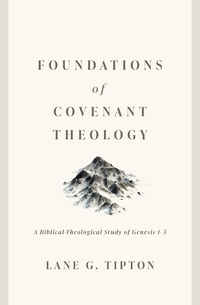


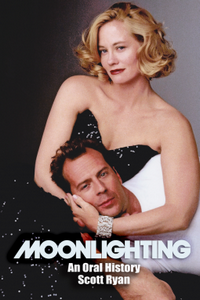

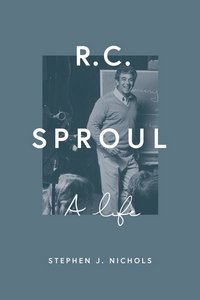

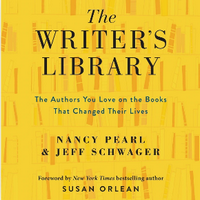



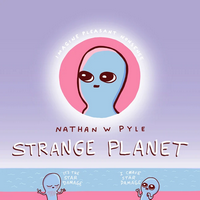

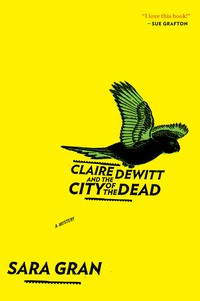

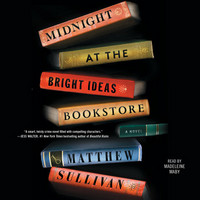

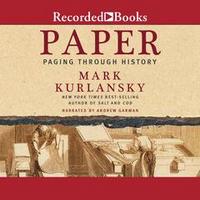

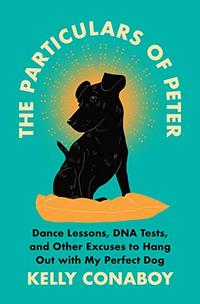
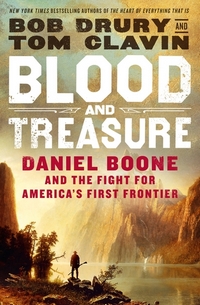
 I stumbled onto my notes from
I stumbled onto my notes from